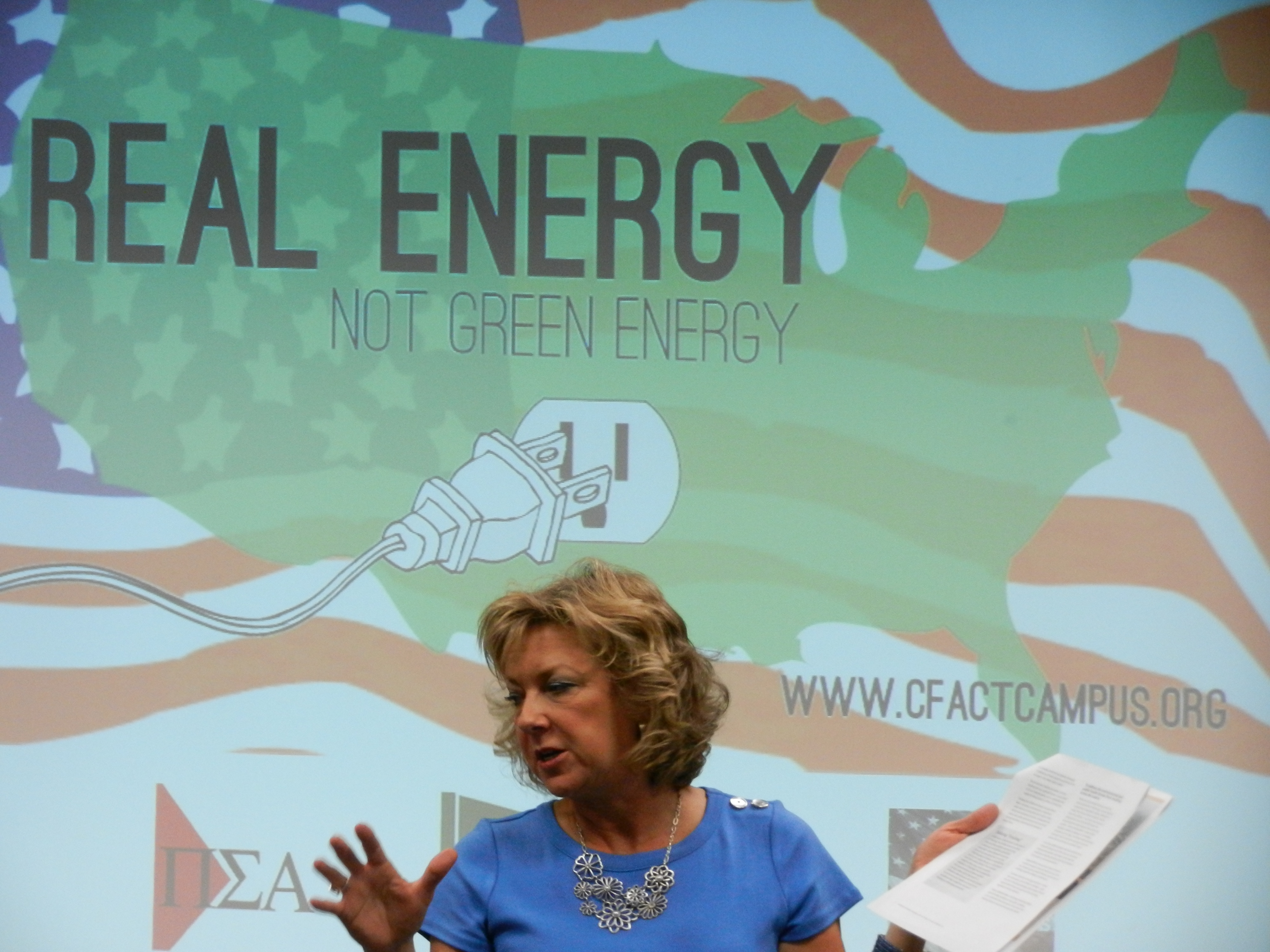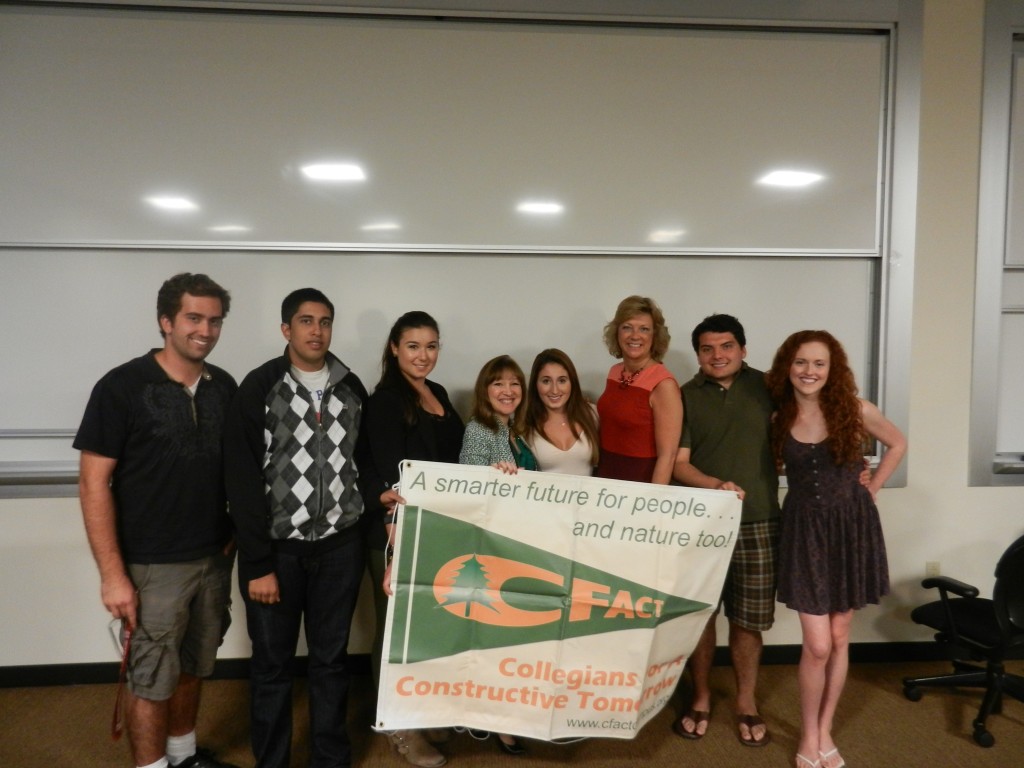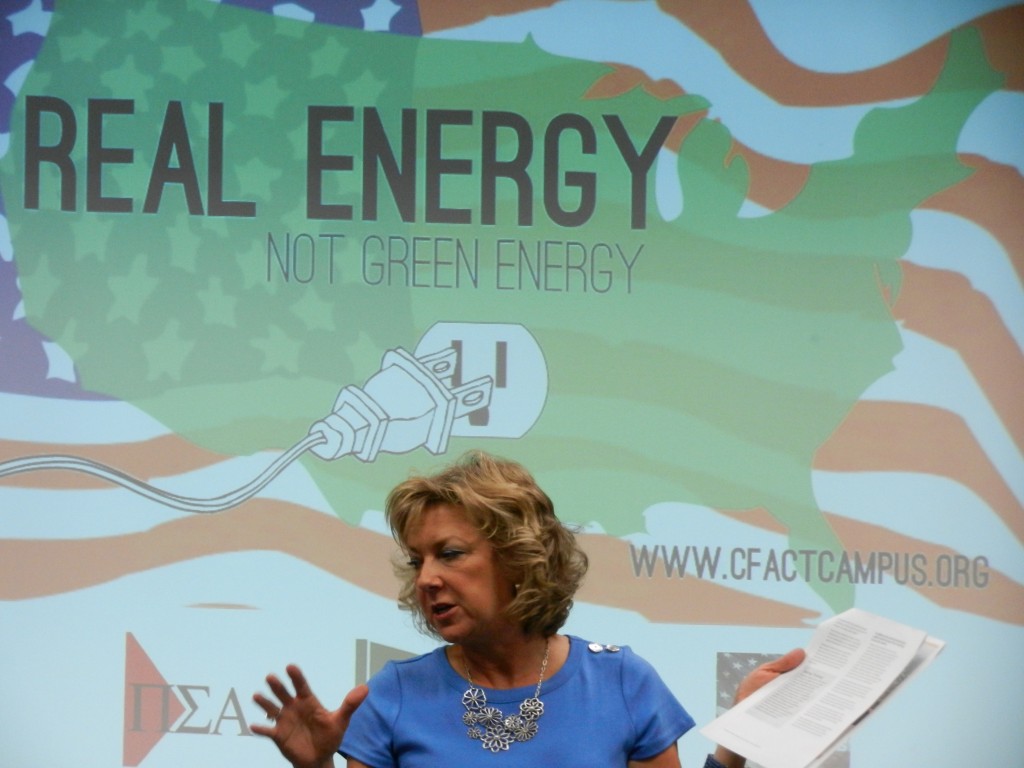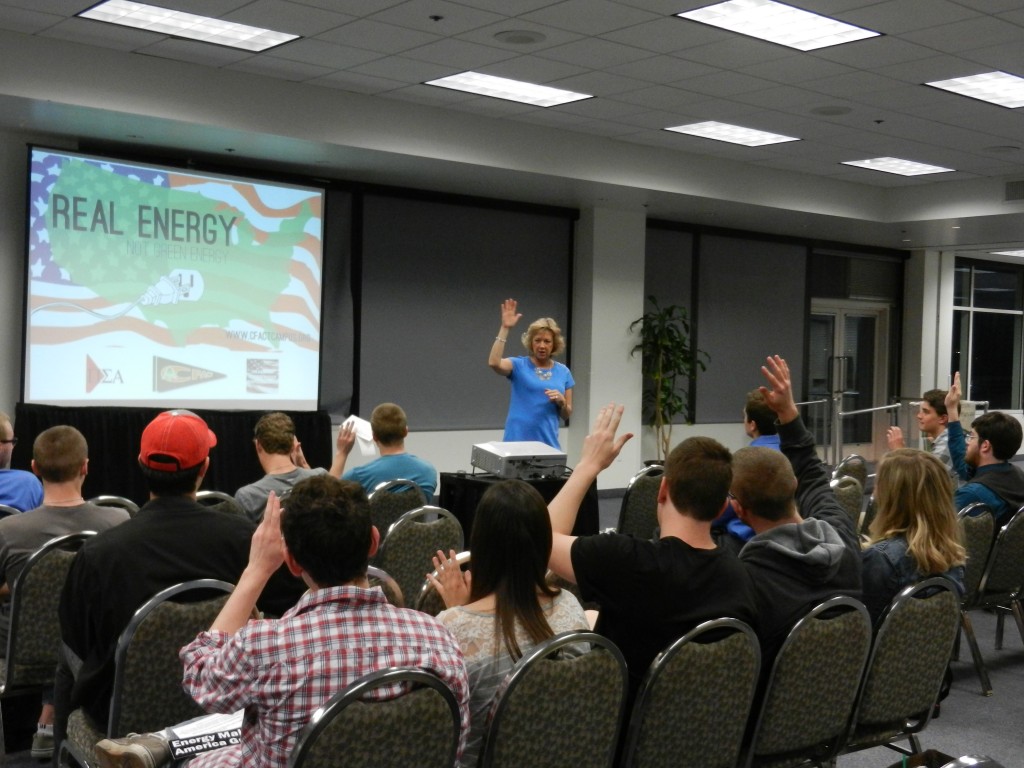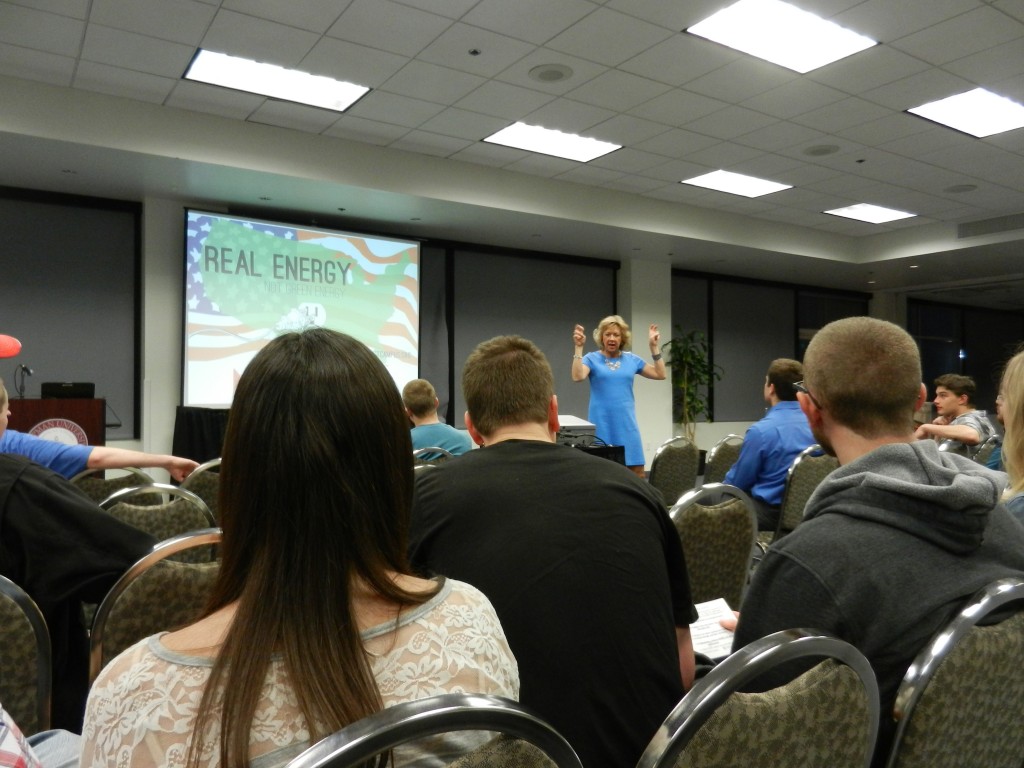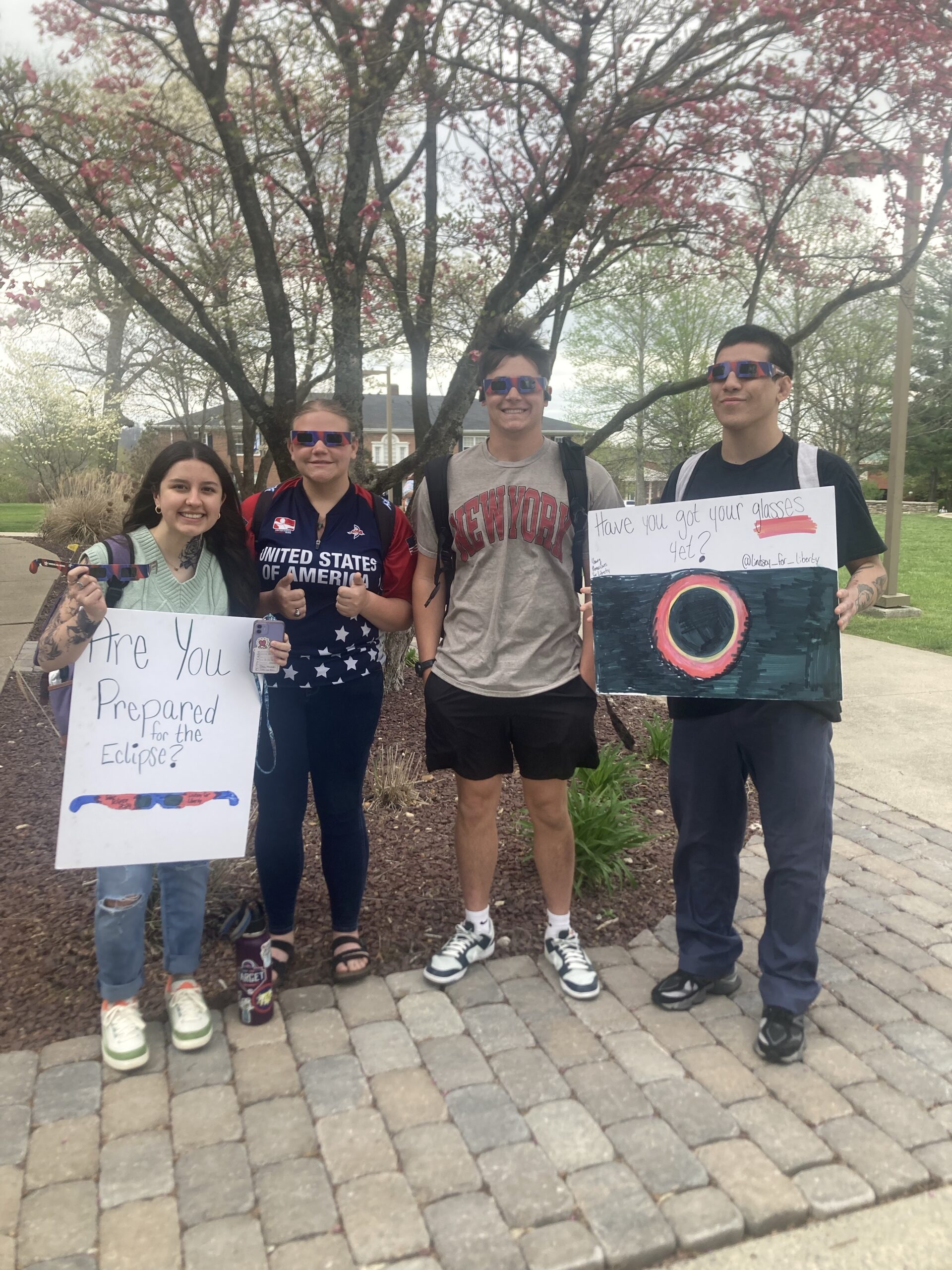“Jobs and economic development are the most important argument to market to college students now,” thundered Marita Noon at the second of two lectures she held on college campuses last week.
Noon, known widely as “America’s Voice on Energy,” spent several days last week serving as the first of several speakers heading out to campuses across the country as a part of CFACT’s REAL Energy Speaker Series. The Executive Director of the Energy Makes America Great, Inc. organization, Noon represents the first of several well-known and highly engaged speakers that will travel with CFACT this Spring.
CFACT’s REAL Energy, Not Green Energy campaign has been focused on driving the discussion away from the false hopes provided by green energy, and instead, on those energy sources that can provide prosperity, jobs, and security to the United States in the future. The national youth unemployment rate is nearly double the national average right now. With piling student loan debt and increased economic uncertainty, the future for many soon-to-be college graduates looks dim. However, if this nation’s leaders start to focus not on rhetoric, but on real energy solutions, tens of thousands of jobs could be created.
This past week, the backdrop was a warm and sunny Los Angeles, CA. CFACT Collegians at Chapman University and Pepperdine University served as hosts to Noon, bringing strong crowds of both students and members of the local community.
At Chapman, in an event joined by the Pi Sigma Alpha honor fraternity and the Chapman College Republicans, Noon spoke to a an eager crowd, discussing a wide array of issues. Because of its prevalence in the news today, there was an initial focus on how Ukraine has been affected by energy availability in its recent troubles with Russia. Because of Russian dominance in the European market, there were significant factors that had to be considered for how best to move forward for all involved states and Noon offered some potential solutions to this problem.
The focus then shifted domestically, with talks on many of the central areas of conflict in the energy realm. These included the safety of hydraulic fracturing, or fracking, oil extraction, coal production, sustainability of certain green energy practices, and what it all meant for the job market and economy.
Noon also spent time talking about how the conversation on energy has been shifted by radical environmentalists, seeking to make fracking also be considered “drilling.” In this way, people would be much more opposed to the idea.
Sabrina Gladstone, a senior at Chapman and one of the event’s organizers, noted “Marita’s lecture was both informative and interesting. She explained the details of tracking in an easily understandable and deftly communicated the full range of benefits to society offered by the fracking process.”
Following the successful event with Chapman, CFACT then ventured up the Pacific Coast Highway to Pepperdine University, the campus resting on a bluff overseeing a Pacific Ocean that extends beyond view. This event, held the following night, was another chance for students to engage in a discussion with Noon about the issues that are important to them and what they mean for their future.
The talk started similarly to the previous night, with a brief introduction into the foreign policy implications for energy in both our country and in areas of global contention. Jobs and the economy dominated most of the discussion though, with similar discussion points centered around growing our energy infrastructure in ways that will truly benefit society, not just those individuals receiving green energy subsidizations.
One of the stories she enjoyed telling, and was largely indicative of the collegiate environment she sought to tap into, was also shared on her weekly column. She said she had driven through Starbucks a few days ago where,
I’d bantered with Jason, the young man selling me my Café Mocha. I told him I was going to New York for the Daily Show to talk about fracking; that they’d have a pro-fracking guest and an anti-fracking guest; that I was the pro-fracking guest. He replied: “Whatever that is.”
This disconnect between understanding of common-sense solutions to many of our energy issues and the seemingly blanket acceptance of “green energy” in college students is the central schism CFACT hopes to bridge through these lectures.
At the end of the end of the talk, students asked several questions focusing on the future job market, such as the viability and availability of fracking in the United States.
In addition to the talks, students received free REAL Energy literature and bumper stickers from Marita Noon’s organization that said “Smash the Watermelons” (a metaphor representative of green energy policies and advocates.) They also had the opportunity to purchase Noon’s new book, Energy Freedom.
Overall, the REAL Energy Speaker Series was a huge success. Students, many of whom were new to these issues, were thrilled at the opportunity to learn about the energy landscape and how it will affect their future.
The next segment of the REAL Energy Speaker Series will take place in New York, with Climate Depot’s Marc Morano. Details will follow as soon as they are available.
Follow Marita Noon’s weekly column on Townhall.com here: http://finance.townhall.com/columnists/maritanoon/
